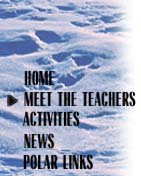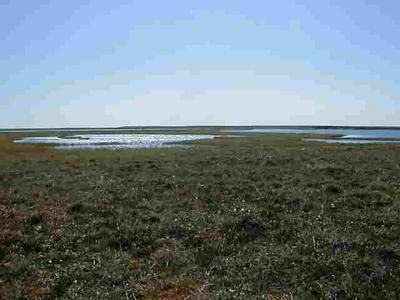
|
|
17 July, 2002
Ever been on an emotional rollercoaster? Moments of anticipation, deep
plunges into the depths of dread, acceleration for a rise in hope, a sudden
drop with disappointment, steady climb into the next unknown turn or spin
or drop. That is how the last three days have been.
Since word on Sunday that I would be going out with the next few days, I've
been trying to mentally prepare for the change. Monday, I figured I'd have
3-4 more days. Tuesday morning, news that I am leaving that afternoon.
Tuesday afternoon, I am told I will stay for another day, maybe two. This
afternoon, I hear that I will be here until at least Saturday. I am
repeating - flexibility, patience, flexibility, patience. Hoping to
convince myself that everything will happen when it can and should. There
are two problems I am having with these plan changes.
First, for anyone that knows me, I like to be in control . . . Have all my
plans made in advance, schedules outlined, timelines set, then all I have
to do is carry them out. Well, I have no control in my staying or leaving
- dates, times, schedules, plans - there seem to be none. This is nobody's
fault. Flights are dependent on available helicopter pilots, other
emergencies, past flight hours logged, weather, and more. It is difficult
for me to just wait and wonder.
The second, are more real difficulty, I have is the anticipation. When I
think I'm leaving, I get myself mentally prepared by thinking of all the
things I've been missing. What I will eat first that I haven't had,
lately. Where I will sleep. Phone calls I will make. Feelings of clean.
Feelings of warmth. When I begin to really want those things, I learn that
I will be staying for awhile. I reverse the wheels in my head, and begin
to focus on everything I still want to see here. I think about flowers I
haven't collected. Pictures I want to take. Views I want to see. Water I
want to slosh through. Conversations I want to have. I begin to be glad,
again, that I have more time. Then, suddenly, plans change again. This is
the emotional roller coaster I am referring to.
Since throughout the day I was preparing to leave, I spent much of it
thinking back on new experiences I've had. In the past, I had not taken
the time to listen as I have here. Today, I was thinking about sounds I've
heard during the past two months. For example, the sounds of rain, snow
and wind on my yellow tent walls. The change in sounds I heard on the same
tent walls as it warmed up and the mosquitoes began their tap dancing and
buzzing. The sound I heard a few mornings ago at Fox Den Camp, while lying
in the tent warming up. It was a clop, clop, clop sound. One I felt I
should be familiar with, but couldn't quite determine without looking out.
There they were. Caribou walking close enough that their footsteps could
be heard within the quietness of my tent home. The now familiar sounds of
birds heard during the night. As I lay in the light of the sun at 3:00 am,
sleepless, recognizing a loon or swan or plover or longspur, I now have a
comfortable feeling knowing the surrounding occupants by sound alone.
These sounds I will miss as I sleep within the walls of a house.
As I walked today, I realized that lately my journal entries have changed
to more of a log of the days' events - I went here, did this, and so on.
Although that is what I "did", there is much more that I am doing and
experiencing. Things that I have not been taking the time to share. For
example, two days ago, as I walked along the Kealok River in search of the
lost and wandering King Eider hen and ducklings, I saw a bird I hadn't
seen before. It turned out to be a Wimbrel, which is very similar to a
curlew, with a down-curved bill and brown/white colorings. I was excited
about this for two reasons. First, I realized how much I've learned about
bird identification. The fact that I new this was a different bird says a
lot in itself. Secondly, by looking close and writing down a description
of the bird, I found it easy to identify when I returned to camp. I was
excited or proud because I realized how much my skills of observation have
improved in just 6 short weeks.
During the past 3 days, I've found ptarmigan nests and sandpiper nests,
both still with unhatched eggs. I saw a group of two king eider hens with
7 ducklings swimming in a pond. I saw a pair of pacific loons swimming
with their new hatchlings. I've found our ground fridge/freezer depredated
by a red fox (it ate or hid over 10 pounds of cheese!!). I've heard about
our all-too-friendly arctic ground squirrels love for chocolate, as it has
chewed 2 holes in Rebecca's tent wall to find hidden candy bars. More than
all that, I've seen more changes in our tundra home.
With this sudden change in weather, evaporation rates have sped up. The
low-lying areas with the low-centered polygons, which were once filled with
water are now dry. Many of the marshy areas that were under water, now
look red with the exposed mud and decaying material. Places where I had
previously splashed or sloshed through, I now hear quiet cracklings as the
plant leaves crumble under my boots. The water level in the rivers have
dropped. Vegetation has emerged above the surfaces of many ponds and
shorelines. The bluffs are no longer able to prevent the melting of last
year's snow. Things have changed. The dominant flower colors are now
yellows and whites, with the asteraceae family dominating. The pasque
flower and willows have already gone to seed. Bird life seems to pass
through in waves. It may be quiet for 2 or more hours, then suddenly a
group of loons will appear in a lake. They will stay for awhile, talk a
bit, then move on. Later, a family of swans will appear, hoot a few times,
float a little, then they, too, move on. No longer is it the norm to see
king eiders or white-fronted geese. Things are changing.
I believe I am changing, as well. I think I've been learning many of the
lessons the tundra has been trying to teach. In the next few days, I will
attempt to share these lessons with you.
--

This is a view of the Niksiq lake area found near the Kealok River. There was a swan nest on the land in the background.
Contact the TEA in the field at
.
If you cannot connect through your browser, copy the
TEA's e-mail address in the "To:" line of
your favorite e-mail package.
|
